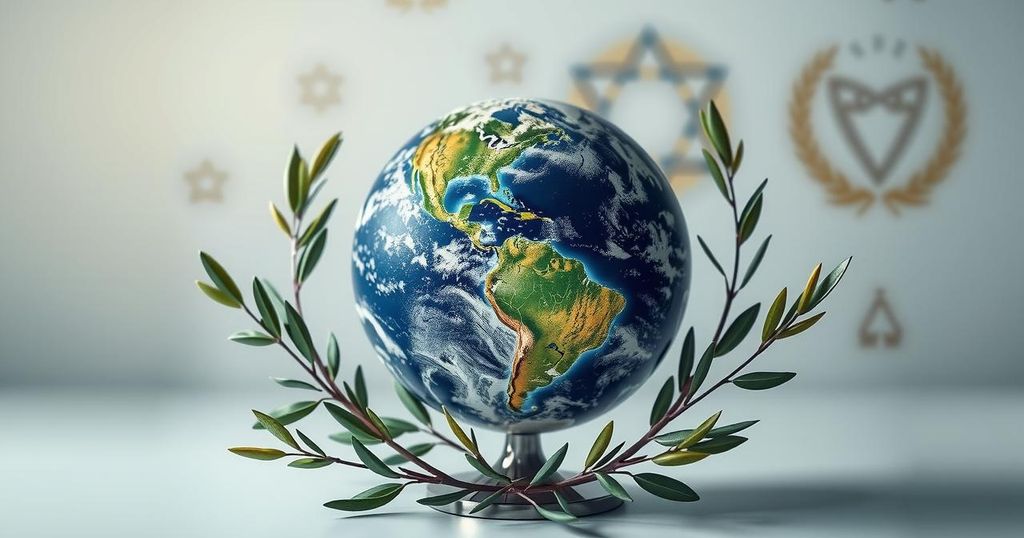The Iranian regime’s oppression of the Baluch people has sparked fierce resistance among the youth, leading to violent confrontations across various Iranian cities. A cleric warns of potential uprisings resulting from widespread dissatisfaction due to economic and political distress. Reports indicate Iran is advancing its nuclear capabilities based on North Korean technology. Protests, particularly driven by women, have surged demanding justice and reform. Additionally, the nation may face a shortage of healthcare professionals due to increasing emigration and personal crises among doctors. Supporters of the PMOI/MEK have staged global protests against death sentences for political prisoners, calling for their release.
Fast Summary: The Iranian regime’s oppression of the Baluch people has sparked fierce resistance among the youth, leading to violent confrontations across various Iranian cities. A cleric warns of potential uprisings resulting from widespread dissatisfaction due to economic and political distress. Reports indicate Iran is advancing its nuclear capabilities based on North Korean technology. Protests, particularly driven by women, have surged demanding justice and reform. Additionally, the nation may face a shortage of healthcare professionals due to increasing emigration and personal crises among doctors. Supporters of the PMOI/MEK have staged global protests against death sentences for political prisoners, calling for their release.
Article Body: The brutal treatment of the Baluch citizens by the Iranian regime, including executions and demolitions of their homes, has ignited outrage among the youth. In various cities, they responded with fiery actions against Basij militia and IRGC centers following the recent killings of young Baluch men. Specifically, on January 26, 2025, security forces demolished homes in Zahedan, exacerbating the community’s desperation.
Prominent cleric Naser Makarem Shirazi expressed grave concerns over rising public discontent in Iran. He warned that continued dissatisfaction could ignite uprisings and revolutions, reflecting a significant disconnect between the Iranian government and its citizens. The regime faces growing unrest fueled by economic crises and ineffective governance that has left countless citizens struggling.
Separate reports indicate that Iran is clandestinely developing nuclear missiles capable of targeting Europe using North Korean designs. The NCRI claims that two facilities are rapidly working toward completing a functional warhead with a range exceeding 1,800 miles, further indicating Tehran’s determination to advance its nuclear ambitions while avoiding international scrutiny.
In January 2025, substantial protests erupted throughout Iran, predominantly led by women demanding justice and equality. Their striking presence in demonstrations across Tehran and smaller cities highlighted their resilience amid increased repression. Protests spread across multiple provinces, showcasing the widespread call for change.
The Iranian healthcare system faces critical challenges, as noted by Yaser Salehi, a member of the regime’s Medical Organization. He cautioned that healthcare workers are leaving the profession, with reports of numerous doctors contemplating emigration and an alarming increase in suicides among them.
Supporters of the PMOI/MEK group have organized global protests against the imminent execution of political prisoners, particularly emphasizing cases such as Behrouz Ehsani and Mehdi Hassani. Similar demonstrations were held in various cities, including Vancouver, Malmö, and Copenhagen, advocating for the release of all political prisoners and condemning the regime’s death penalty practices.
Background: Recent events in Iran indicate a rising tide of resistance against the regime’s oppressive policies, particularly towards the Baluch population. The economic, social, and political discontent among citizens has the potential to disrupt the current stability of the regime. The country’s secret nuclear advancements raise concerns among international observers, while grassroots movements reflect the populace’s desire for reform and justice.
Quotes: “If dissatisfaction continues, it will lead to uprisings and revolutions.” – Asr-e Jadid.
Proof to Links: [Asr-e Jadid](https://asr-e-jadid.com), [NCRI Report on Nuclear Missiles](https://ncri.org/iran-nuclear-missiles), [Women Protests in Iran](https://ncri.org/women-protests-iran), [Healthcare Migration Report](https://ncri.org/healthcare-migration-report).
Conclusion: The intensifying resistance against the Iranian regime illustrates a profound public yearning for change, particularly among marginalized groups such as the Baluch people and women. As protest activities grow and the implications of Iran’s nuclear ambitions continue to unfold, the urgency for democracy and justice becomes increasingly critical. Global protests for the release of political prisoners highlight the international support for those oppressed by the Iranian government.
Title: Growing Discontent and Resistance: Updates on Iran’s Societal Challenges and Protests
The Iranian regime has faced persistent challenges due to widespread public dissatisfaction among various ethnic groups, particularly the Baluch, and a declining economy. Reports indicate alarming developments regarding the regime’s pursuit of nuclear capabilities, and protests aimed at reform have notably surged, especially among women. Current events underscore a significant rift between the government and the populace, raising concerns about potential uprisings and the status of human rights in Iran.
The situation in Iran reflects deep-rooted issues of oppression and discontent. The youth, particularly from marginalized communities, are actively resisting government brutality, and women’s leadership in protests signifies a pivotal shift for societal change. As Iran’s nuclear ambitions raise global alarms, the international community’s response to human rights violations and calls for democracy will be crucial in shaping the future of Iranian society.
Original Source: www.ncr-iran.org






